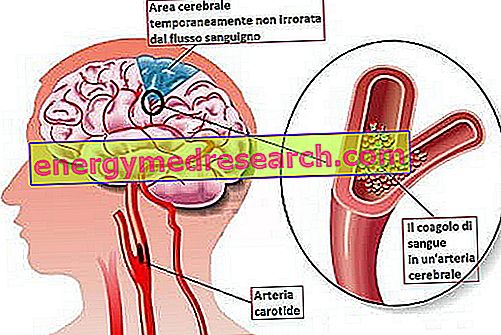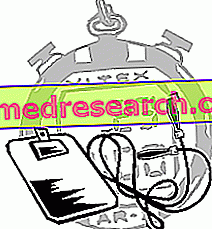Definition
Mononucleosis (or kissing disease) is an infectious pathology with modest infectiousness, transmitted through infected saliva. Given the diagnostic difficulty, mononucleosis is not always treated promptly, a decisive factor in the patient's healing time.
Causes
Mononucleosis is caused by the Epistein-Barr virus (EBV), belonging to the Herpes virus strain, the same as the shingles and cold sores herpes / genital. The virus - after infecting the host - can remain silent as long as the subject's immune defenses are lowered: in such conditions, favorable to its development, the virus creates the symptomatology.
Symptoms
In the prodromal phase, the patient with mononucleosis complains of anorexia, muscle pain, low-grade fever, headache, sweating. Following the decrease in immune defenses, EBV triggers complex symptoms: asthenia, pharyngitis, fever, lymphadenomegaly, urticaria and splenomegaly.
Among the (rare) complications associated with mononucleosis we find: haemolytic anemia, meningitis, thrombocytopenia, possible involvement of heart and lungs and rupture of the spleen (very formidable).
Diet
Natural Care
Information on Mononucleosis - Drugs for the Treatment of Mononucleosis is not intended to replace the direct relationship between health professional and patient. Always consult your doctor and / or specialist before taking Mononucleosis - Drugs for the Treatment of Mononucleosis.
drugs
Generally, mononucleosis has a benign course and resolves within two or three weeks; although chronic relapses are rather rare, it is good to keep the immune system effective and active, adopting a healthy lifestyle associated with proper nutrition and sport.
Among the drugs most used to lighten the mononucleosic symptoms are:
- Antipyretics : paracetamol (eg Acetamol, Tachidol, Tachipirina) taken orally in the form of tablets, syrup, effervescent sachets or suppositories. Generally, it is recommended to administer 325 to 650 mg every 4-6 hours for 6-8 consecutive days to lower the fever. However, paracetamol is not recommended during the prodromal phase (characterized by low-grade fever).
- Analgesics (eg ibuprofen: Brufen, Moment, Subitene) take from 200 to 400 mg of active ingredient (tablets, effervescent sachets) every 4-6 hours, as needed. In some cases, the analgesic can also be administered via the IV (400 to 800 mg every 6 hours, as needed)
- Aciclovir (eg. Aciclovir, Xerese, Zovirax): in some cases of mononucleosis, the doctor prescribes this substance, the drug of choice for the treatment of Herpes simplex. However, many specialists doubt the efficacy of this drug to treat the disease.
- Corticosteroids (eg cortisone: eg Cortis, Cortone acetato): to be used only in case of severe symptoms, for a short period (eg in case of enlargement of the spleen or hepatitis). For example, in the case of thrombocytopenia / haemolytic anemia associated with mononucleosis, take 25 to 300 mg per day of oral or intramuscular medication, divided into one or two doses.
- Immunoglobulins : to be used only when the drugs listed above are not effective. The choice of the drug and the dosage must be prescribed by the doctor.
In most cases mononucleosis is a self-limiting disease with a benign course, therefore it is cured with rest, following a light and regular diet, and with drugs able to lighten the mononucleosic symptomatology.



